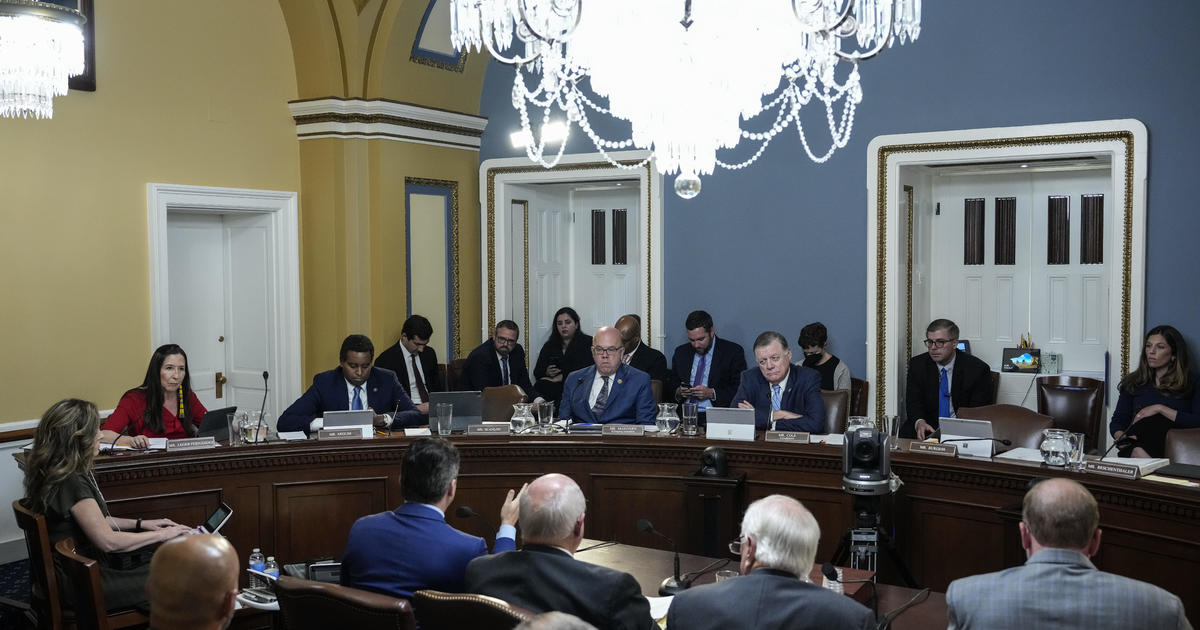Washington — The bipartisan agreement to raise the debt ceiling and limit government spending passed a critical test in Congress on Tuesday, advancing out of the House Rules Committee despite opposition from some conservatives.
With the clock ticking to prevent the nation from defaulting on its debts the committee, which sets ground rules and the length of time for debating legislation and any amendments allowed, voted 7 to 6 to move the bill to the House floor, where a vote is expected Wednesday.
Two members of the conservative House Freedom Caucus who sit on the panel — Rep. Chip Roy of Texas and Rep. Ralph Norman of South Carolina — voted against allowing it to move forward, saying it does little to rein in government spending. They would have needed one more Republican on the committee to join them to sideline the deal, which President Biden and Speaker Kevin McCarthy reached over the weekend after weeks of talks.
But Rep. Thomas Massie of Kentucky, a third conservative on the committee, provided the deciding vote in advancing the legislation.
“When people want to express their ideology, the floor of the House on the actual final passage of the bill is the place to do that,” Massie said.
The House Rules Committee is just the first hurdle the deal has to clear before its potential final passage. Congress is trying to get the legislation across the finish line before Monday, when Treasury Secretary Janet Yellen has projected the federal government will run out of cash to pay its bills.
A growing number of Republicans have said they’ll vote no, including Reps. Wesley Hunt of Texas, Nancy Mace of South Carolina and Cory Mills of Florida. The House Freedom Caucus is also rallying other Republicans to vote against it.
“This deal fails, fails completely,” Freedom Caucus chairman Scott Perry said at a news conference Tuesday ahead of the Rules Committee vote. “That’s why these members and others will be absolutely opposed to the deal and we will do everything in our power to stop it.”
“Not one Republican should vote for this deal. It is a bad deal,” Roy added.
Rep. Dan Bishop of North Carolina called it a “career-defining vote for every Republican.”
“If there is any path to salvaging what we began as a unified conference, if there is any path to that, this bill, if it passes, must pass with less than half of the Republican conference,” Bishop said.
But nearly two dozen House Republicans appeared at a late-night news conference in support of the legislation, touting it as a win for conservatives. The session with reporters followed a long closed-door meeting where members raised their concerns with the bill.
Majority Leader Steve Scalise, of Louisiana, said, “The more that people read in this bill, the more they find in terms of real conservative victories.”
He said it will help rein in government spending and get the economy back on track, stressing that, “There are a number of pieces in this bill that never would have existed if Nancy Pelosi was still Speaker of the House.”
McCarthy has said he expects a majority of House Republicans to support the measure. House Minority Leader Hakeem Jeffries said it’s his understanding that at least 150 Republicans would vote for the deal, which means at least 68 Democrats would be needed to pass the bill in the House. But in an interview with “Face the Nation” on Sunday, Jeffries demurred when asked how many Democrats would back it.
The deal also faces opposition in the Democratic-controlled Senate, where it needs 60 votes to pass.
Republican Sen. Mike Lee of Utah said it doesn’t go far enough to reduce spending, while GOP Sen. Lindsey Graham of South Carolina said he opposes caps on defense spending that could take effect later in the year if Congress doesn’t approve government spending bills. Republican Sen. Rand Paul of Kentucky said he plans to offer an amendment “with responsible reforms and necessary cuts.”
Democratic Sen. Tim Kaine of Virginia is seeking to remove a new natural gas pipeline project from the bill, his office said Monday. The bill would fast-track construction of the pipeline, which would carry natural gas from West Virginia to Virginia.
“This provision is completely unrelated to the debt ceiling matter,” his spokeswoman said in a statement. “He plans to file an amendment to remove this harmful Mountain Valley Pipeline provision.”
Stay connected with us on social media platform for instant update click here to join our Twitter, & Facebook
We are now on Telegram. Click here to join our channel (@TechiUpdate) and stay updated with the latest Technology headlines.
For all the latest Education News Click Here

